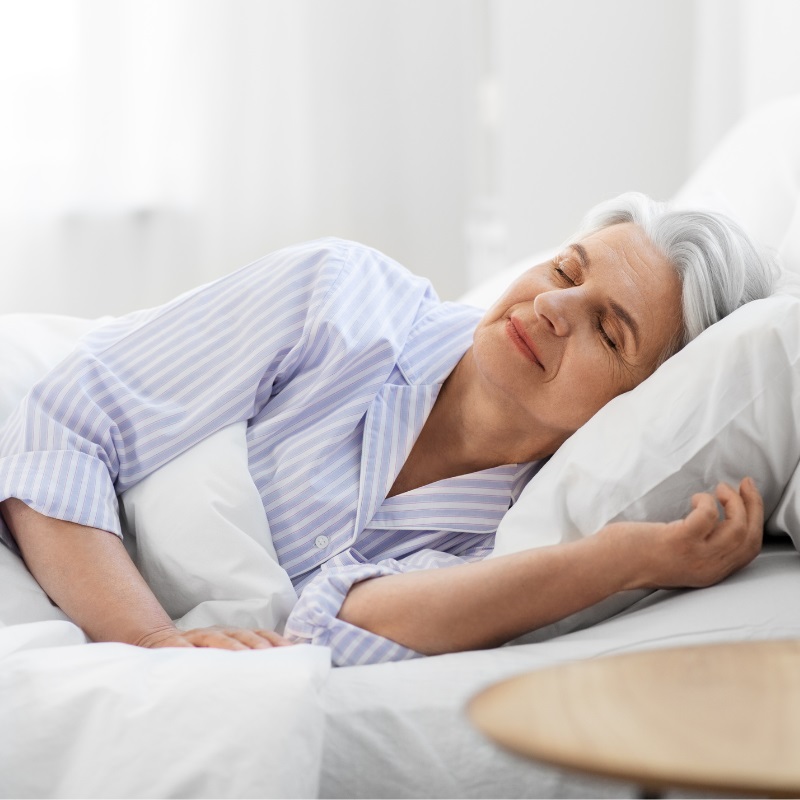How Much Sleep Do Seniors Need?
Sleep is the secret sauce for a healthy and vibrant life, and it’s especially crucial in our later years. But how much sleep do seniors really need to thrive? Let’s find out…
How Much Sleep Do Seniors Need?
First things first—how much sleep do seniors really need? While everyone is a little bit different, the general consensus among experts is that older adults should aim for (at least) 7 to 9 hours of quality sleep each night. However, it’s important to remember that lifestyle, health, and personal preferences can influence this number. So, adjust accordingly.
Changes to Sleep as We Age
As you get older, you might find your sleep becomes fragmented, waking up more often during the night or experiencing lighter sleep phases. This is fairly common with age, but it also means spending less time in deep sleep (REM sleep), where our bodies and minds do the most healing. In other words, we get less benefits from the same amount of sleep as we age. This is why it’s absolutely essential to get the recommended amount of rest every night, to increase your time spent in deep, REM sleep.
The Benefits of Sleep for Seniors
Quality sleep plays a vital role in memory and cognition, possibly warding off conditions like dementia. And it also contributes to physical health, aiding in the repair of tissues and boosting the immune system. Plus, sleep is a mood enhancer—who doesn’t wake up feeling more cheerful after a peaceful night’s sleep? It’s no surprise that seniors who achieve adequate sleep often feel happier, more alert, and sharper mentally!
Tips for Satisfying Sleep
Now, how can you sleep better, and enjoy more, deep, REM sleep as you age? Here are some helpful tips…
Relax before your sleep: Wind down before bed by reading, doing some gentle stretches, or enjoying a warm cup of herbal tea.
Keep it consistent: Create a consistent schedule by going to bed and waking up at the same time every day. This will help your body and mind recognise when it’s time to nod off.
Stay active: Stay physically active during the daytime to promote better sleep. But avoid strenuous exercise close to bedtime.
Limit stimulants: Reduce caffeine, sugar, and alcohol intake, especially in the evening. Otherwise, you’ll be bouncing off the walls when it’s time to hit the hay!
Create an environment that promotes good sleep: Ensure your bed is comfortable, with clean, flat sheets, and a suitable pillow. Keep the temperature around 18 degrees Celsius, use some blackout blinds for darkness, and ensure your home is quiet. Your surroundings can either make or break your sleep!
A good dose of sleep helps us make the most of each day. So, invest in your body and mind, and ensure you get what you need when you hit the sack!
Could you use some help shopping for a new pillow? Or do you need some assistance with your bedtime routine? Here at Simply Helping, we offer a wide range of home care services to keep you happy and healthy as you age! Click here to learn more and contact us today.





